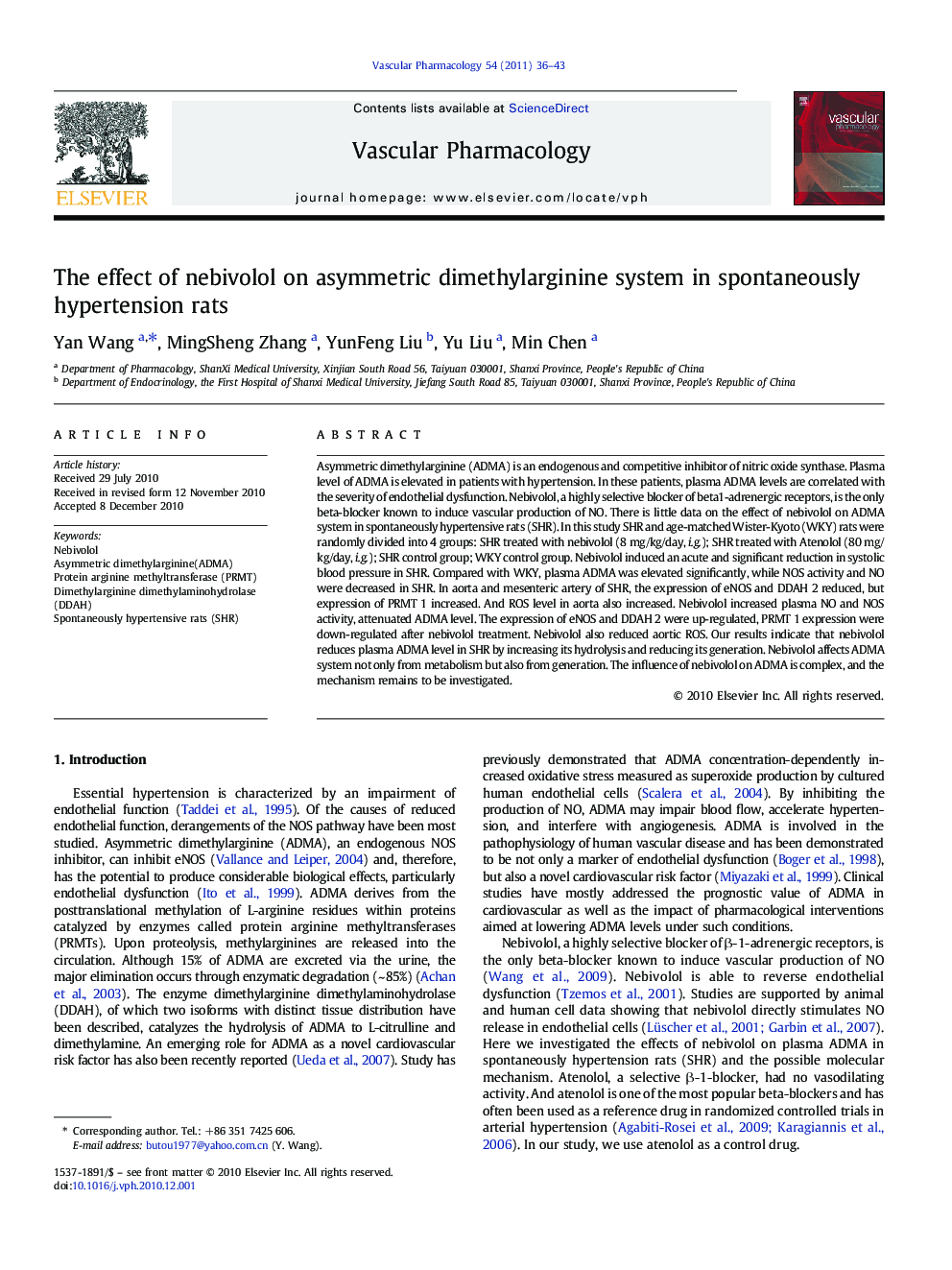| Article ID | Journal | Published Year | Pages | File Type |
|---|---|---|---|---|
| 5847636 | Vascular Pharmacology | 2011 | 8 Pages |
Asymmetric dimethylarginine (ADMA) is an endogenous and competitive inhibitor of nitric oxide synthase. Plasma level of ADMA is elevated in patients with hypertension. In these patients, plasma ADMA levels are correlated with the severity of endothelial dysfunction. Nebivolol, a highly selective blocker of beta1-adrenergic receptors, is the only beta-blocker known to induce vascular production of NO. There is little data on the effect of nebivolol on ADMA system in spontaneously hypertensive rats (SHR). In this study SHR and age-matched Wister-Kyoto (WKY) rats were randomly divided into 4 groups: SHR treated with nebivolol (8Â mg/kg/day, i.g.); SHR treated with Atenolol (80Â mg/kg/day, i.g.); SHR control group; WKY control group. Nebivolol induced an acute and significant reduction in systolic blood pressure in SHR. Compared with WKY, plasma ADMA was elevated significantly, while NOS activity and NO were decreased in SHR. In aorta and mesenteric artery of SHR, the expression of eNOS and DDAH 2 reduced, but expression of PRMT 1 increased. And ROS level in aorta also increased. Nebivolol increased plasma NO and NOS activity, attenuated ADMA level. The expression of eNOS and DDAH 2 were up-regulated, PRMT 1 expression were down-regulated after nebivolol treatment. Nebivolol also reduced aortic ROS. Our results indicate that nebivolol reduces plasma ADMA level in SHR by increasing its hydrolysis and reducing its generation. Nebivolol affects ADMA system not only from metabolism but also from generation. The influence of nebivolol on ADMA is complex, and the mechanism remains to be investigated.
Graphical AbstractDownload high-res image (760KB)Download full-size image
